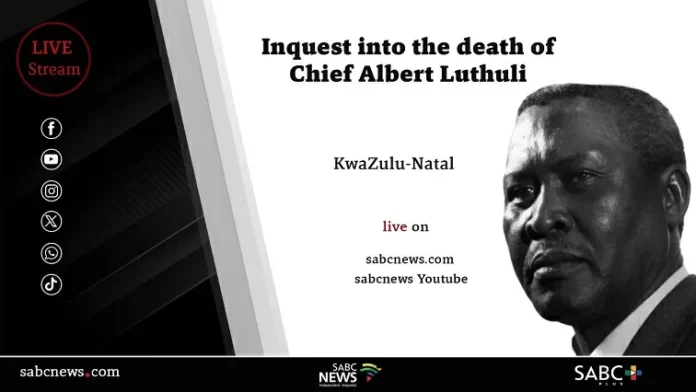The inquest into the death of Chief Albert Luthuli is currently underway at the KwaZulu-Natal High Court, marking a significant moment in South Africa’s history. The revered leader and Nobel Peace Prize laureate passed away under mysterious circumstances in 1967, and now, over 50 years later, the truth behind his death is finally being sought.
Chief Luthuli was a prominent figure in the fight against apartheid and played a crucial role in the struggle for freedom and equality in South Africa. His unwavering commitment to non-violent resistance and his strong moral compass made him a beloved leader among his people and a symbol of hope for the oppressed.
The inquest, which began on Monday, has brought together a team of legal experts, historians, and witnesses to shed light on the events surrounding Chief Luthuli’s death. The proceedings are being presided over by Judge Billy Mothle, who has been tasked with uncovering the truth and delivering justice for the late chief and his family.
The courtroom was filled with a sense of anticipation and reverence as the inquest began. The family of Chief Luthuli, along with members of the African National Congress (ANC) and other political parties, were present to witness this historic moment. The atmosphere was one of determination and a shared desire to finally uncover the truth.
The inquest has already revealed some startling revelations, including the fact that Chief Luthuli’s death was not an accident as initially believed. The evidence presented so far points to a possible assassination plot, with allegations of involvement from the apartheid government. This has only strengthened the resolve of those seeking justice for Chief Luthuli and his legacy.
As the proceedings continue, it is clear that this inquest is not just about finding closure for the family of Chief Luthuli, but also about honoring his memory and the sacrifices he made for his country. It is a reminder of the dark past of apartheid and the need to never forget the struggles of those who fought for our freedom.
The inquest has also sparked conversations about the need for accountability and justice for other anti-apartheid activists who lost their lives under suspicious circumstances. It is a step towards healing and reconciliation for a nation that has been scarred by its past.
The legacy of Chief Luthuli continues to live on, not just in the hearts of his people but also in the values he stood for. His unwavering commitment to justice, equality, and non-violent resistance serves as an inspiration to all South Africans, especially in these trying times.
As the inquest unfolds, it is a reminder that the fight for justice and equality is an ongoing one, and we must never forget the sacrifices made by those who came before us. It is also a call to action for us to continue the work of building a better, more equal society for all.
In conclusion, the inquest into the death of Chief Albert Luthuli is a significant moment in our history, one that will hopefully bring closure and justice for a man who dedicated his life to the struggle for freedom. Let us all stand together in solidarity and support the pursuit of truth and justice for Chief Luthuli and all those who fought for a better South Africa.

